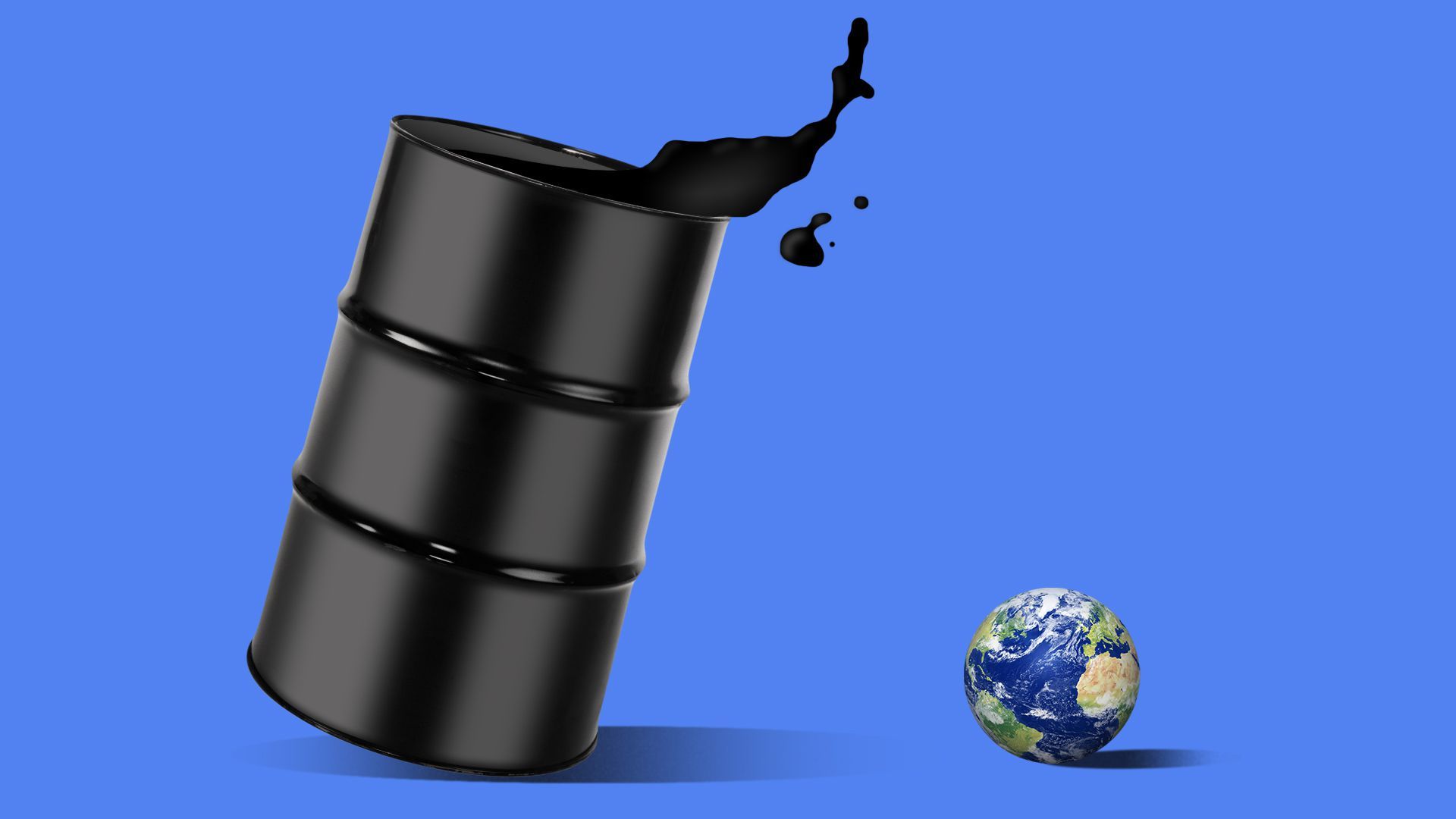What the oil market's collapse means for the climate
Add Axios as your preferred source to
see more of our stories on Google.

Illustration: Aïda Amer/Axios
Convulsions in global oil markets are creating new wildcards for efforts to rein in carbon dioxide emissions and boost climate-friendly energy.
The state of play: In the abstract, cheaper energy makes cutting consumption more difficult, something to watch if low prices outlast the coronavirus outbreak. Lower revenues could also potentially hinder oil giants' investments in low-carbon tech and startups.
- This price collapse is coinciding with a public health emergency that's wreaking economic havoc, which could cut nations' bandwidth to focus on the various climate goals set in recent years.
- The economic fallout is also slashing CO2 emissions over the near-term, but for tragic reasons nobody should want replicated.
But, but, but: There's also reason to think the price crash could be irrelevant or even supportive of clean energy, in part because it's part of a wider economic shock.
- Consider that it shrinks oil majors' gap between returns on oil production vs. renewable energy projects, which are less lucrative but more stable.
- On the "irrelevant" side, consider that the relationship between driving levels and gasoline prices in the U.S. is actually not especially strong.
- Also, lower prices make it easier to reform fossil fuel subsidies, which are quite large globally and climbed in 2016–2018 after years of declines.
What they're saying: The oil price collapse "will definitely put downward pressure on the appetite for a cleaner energy transition," International Energy Agency head Fatih Birol tells the FT.
- Bloomberg columnist David Fickling calls the effects of the oil crash "nuanced" but adds that overall they're "positive for decarbonization" — and he doesn't think emissions will be set to bounce back again after this downturn the way they have in the past.
Go deeper: OPEC-Russia oil price war escalates as Saudi Aramco announces supply increase
